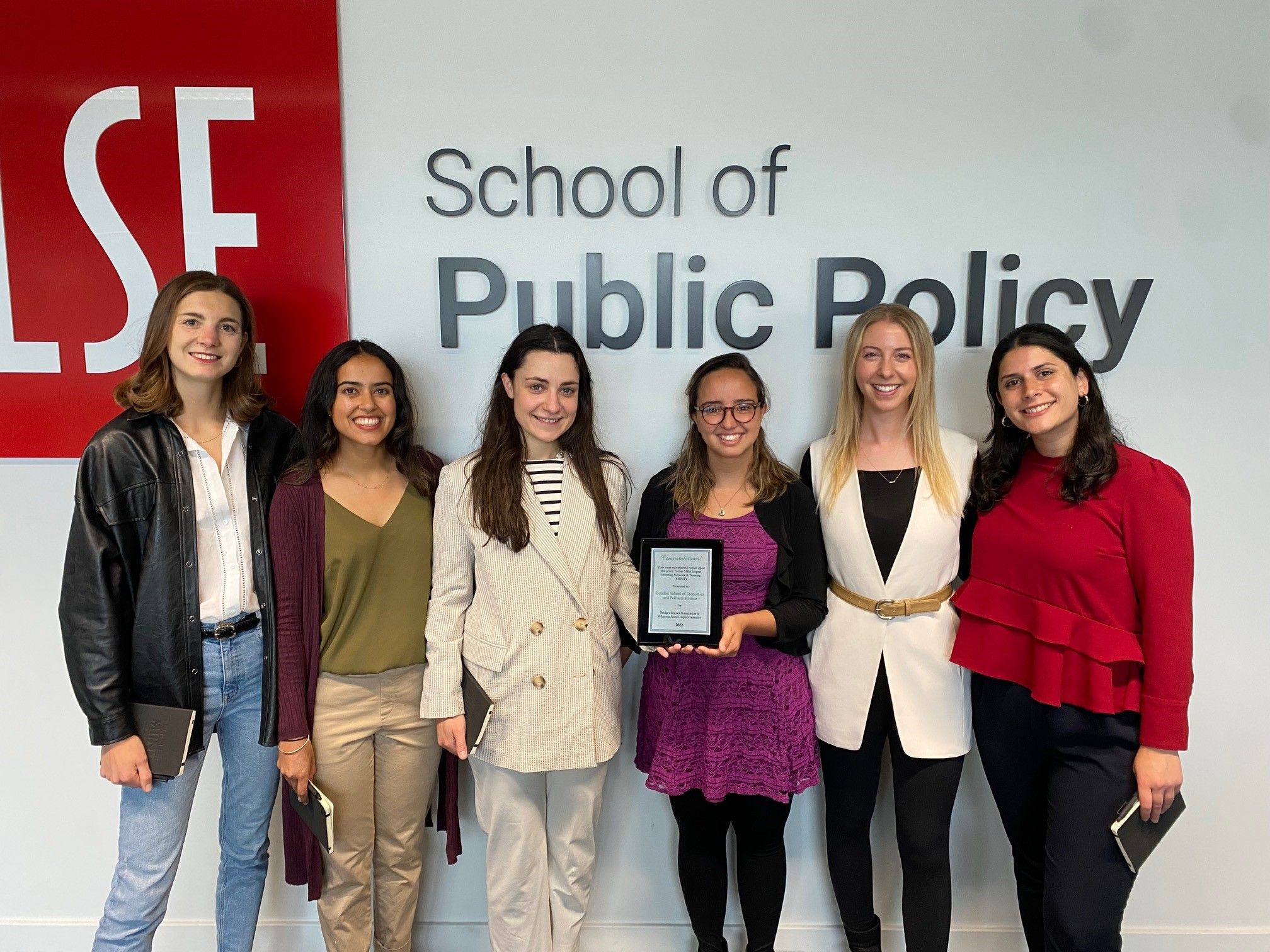 The Marshall Institute’s new Senior Lecturer in Practice Kerryn Krige talks about her experiences in the social enterprise sector to date and what she’s learned along the way.
The Marshall Institute’s new Senior Lecturer in Practice Kerryn Krige talks about her experiences in the social enterprise sector to date and what she’s learned along the way.
You are joining LSE after working on a variety of social entrepreneurship projects in South Africa. What made you decide to return to academia?
I left GIBS (the Gordon Institute of Business Science, the business school of the University of Pretoria) in 2017 to support the development of a policy for the Social and Solidarity Economy (SSE) in South Africa. Here I spent four years working with the ILO (the UN’s International Labour Organization) and the Government of South Africa, trying to understand what an enabled eco-system for SSE organisations looks like. It’s not an easy question to answer, especially as South Africa’s inequality means that there is no one-size-fits-all approach when it comes to policy making. Travelling the country and meeting social entrepreneurs working in very different and complex circumstances transformed my thinking around social enterprise organisations and how they operate.
It is through teaching that I find I often make sense of things, as we learn together in the classroom. So, throughout this time, I continued to teach the MBA elective at GIBS, and with my PhD supervisors, we set up the African Network of Social Entrepreneurship Scholars (ANSES). This was an adventure – we had to be inventive to identify and reach people. Since 2017, ANSES has grown from a network of three, to over 200 academics. It’s been a wonderful journey, developing case studies, hosting seminars and recently publishing an open access curriculum for faculty to adapt and use, to stimulate social entrepreneurship teaching across the African continent. So, although I wasn’t professionally working for a university during my time with the ILO, I was still very involved in researching, teaching and learning.
You originally trained as a journalist. How did you move into the world of social entrepreneurship? Do you think your experience in journalism has influenced the way you work today?
I’ve thought about this question a lot, because the fields at first glance don’t seem at all connected, but they are. I think journalism and social entrepreneurship are both about being curious, as you try to understand the world around you. As a journalist, you ask questions, always working to interpret peoples’ circumstances, and the underlying, often hidden reasons as to why something is. Crucially, you can’t impose your views on others – you must keep an open mind, otherwise, how do you analyse and interpret?
And this is essentially social entrepreneurship – a world where we work to address issues, and where our interventions are framed not by us, but instead by the people we work with.
You can only do this, if you are curious, keep an open mind, and always look around corners, trying to understand what is not immediately obvious.
Before joining the LSE, your most recent role was at the International Labour Organization. What do you think is the most useful thing you’ve learnt from that experience?
Sjoe! (To use a good South African word!) Where to start!
My motivation for joining the ILO was that it was time to face my fears. Up until that moment, I had limited experience developing (rather than influencing) policy and had not tackled issues directly from within government. I had a stereotypical view of government as overly bureaucratic and lacking in action.
I experienced the complete opposite: I was privileged to be part of the team that developed the Social and Solidarity Economy policy, that contributed to the design of the Social Employment Fund which is an innovative public employment programme, and then co-wrote the Social and Solidarity Economy strategy for the African Union. During this time, we conducted the largest study of the Social and Solidarity Economy in South Africa, deliberately reaching practitioners who were outside of established networks, operating in very different, under-resourced, complex environments.
My time with the ILO taught me valuable lessons around how to work with multiple stakeholders, how to be perceptive of political realities, but most importantly, that context and social entrepreneurship are inextricably linked. This link to context may seem obvious, but it fundamentally reshaped by views. It is because of my time with the ILO, that I am now cautious of how we approach understanding social entrepreneurship: I think we under-estimate levels of informality for example, and that many SE organisations are micro in size and nature. Should we then be focusing on scale as a mechanism for growth? Or should we rather work towards stability and sustainability? I am intrigued by trust and how it acts as a glue. And I continue to have nagging questions on inequality and how this affects our understanding of SE.
So, the most useful lesson I learnt? Keep exploring.
What’s most challenging about teaching the emerging field of social entrepreneurship?
Answering the question…
“What IS social entrepreneurship?” 😊





